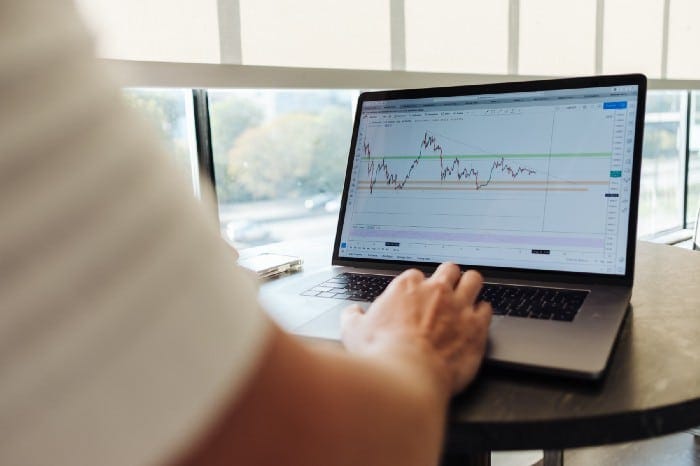Brazil IPO Season Is On!
The tech scene in LatAm is on fire and the Brazil tech scene took the lead and in a couple of weeks doubled the number of companies with public tech companies. Will they arise as great public tech companies?
This week Nathan Latka spoke in a SaaStr conference online and told the public that he is paying close attention to the LatAm market You might be asking yourself why, right?
According to Nathan`s point of view, the tech industry in Latin America is rising to standards never seen before. And all that has a reason, few of them are: companies are getting more mature, customers are getting used to technology, the cost of capital is dropping and the continent has a lot of problems that can be solved with technology.
But how’s that related to what I`m going to talk about? Well, only this week Brazil had five companies applying to open its capital on the Brazilian Stock Exchange. If you take a closer look at the Brazilian Tech Market, besides Stone, Arco, and PagSeguro that are listed in NASDAQ, the country only had four tech companies listed in B3.
So in a matter of a few days, with five prospects looking for the IPO, Brazil has more than doubled its figure. That’s amazing! For the first time, Brazilian companies are taking their chances of opening their capital.
Which companies I’m talking about? Well, the list is:
Mosaico (the holding that owns Zoom.com.br, Buscape, and Bondfaro),
Enjoei (e-commerce),
Meliuz (cashback),
Housi (Housing as a Service)
Wine (e-commerce)
All of this might be influenced by the growth that Locaweb achieved in 2020. Since February, the stock has achieved more than 200% growth and made a great number of investors pay close attention to the Brazilian Tech Market.
What we can expect from those companies?
The startup scenario in Brazil looks promising and most of those companies have a track record that explains their movement in the direction of the hall of future public companies.
What will happen is that these startups will test the mood of Brazilian investors, especially those attracted by technology and internet companies. In general, they are companies with high growth potential but still have relatively low revenues. Though, most of them are profitable.
According to the NeoFeed article, the companies figure with some kind of good unit economics. Méliuz, which has among its investors the Brazilian venture capital fund Monashees and the Americans Lumia Capital and Endeavor Catalyst, for example, obtained gross service revenue of R $ 90.5 million in 2019. In the period, profit was R$15 million. In the first six months of this year, revenue reached R $ 62.2 million and profit reached R $ 12.7 million.
Wine, in turn, had revenues of R$252.7 million in 2019 and R$146.3 million in the first six months of this year. Gross profit totaled R$120.9 million last year and R$70 million in the first half of 2020. The main investors are Península, owned by businessman Abilio Diniz, and EB Capital.
Housi, created by developer Vitacon, owned by businessman Alexandre Lafer Frankel, had revenue of R $ 3.2 million in the first half. The investor is Redpoint e-ventures, owner of a minority stake in the company.
Mosaico had net revenue of R $ 114 million and an Ebitda of R$57 million. The plan is to use part of the funds it intends to raise in the IPO to pay a debt with BTG Pactual, made to acquire Buscapé, in May 2019.
But be not fooled by the hype, not all of those companies, that are trying their chance in the capital market, are profitable as we might know from most of the startups in the world. Now we are being very specific on the case of Enjoei, which obtained revenue of R$37 million and a loss of R$4.6 million in the first six months of this year. Monashees is one of the website’s investors, considered an online thrift store in which individuals sell to individuals. The thesis towards Enjoei opening its capital is, besides the numbers, due to the amazing growth achieved during the pandemic.
Now, looking at a more positive side we have Mosaico that is doing this movement to leverage capital to pay a debt with BTG Pactual, who lent money to the company to acquire Buscape. While Housi has in its favor the upside of being a spin-off from Vitacon, acting in the real estate business and managing more than 11.000 units in a market that did not suffer much impact during the pandemic.
Again according to NeoFeed, who spoke with an investment banker, Housi believes that its offer could exceed a billion reais, something close to US$200MM. It may seem like a lot for a company whose revenue amounts to just over R$ 3 million in the first half of the year.
Wine also plans to raise R$1 billion, according to information circulated about its offer. Now, regarding Méliuz, the market estimates the volume to be around R$650 million. Enjoei also wants to raise between R$500 million and R$600 million. Mosaico can raise more than R$ 300 million net in its primary offer.
The fact is that the tech market is very hot right now, and the Brazilian movement emulates what is happening in the USA for example, where a lot of companies figure in line to open its capital. To name some of those companies we have Palantir, Doordash, Unity, and Airbnb.
Again, do not be fooled by the hype and pay close attention to the numbers on the prospect. As we are talking about startups there is always a good dose of risk involved, but we can see how promising the Brazilian market is becoming and have a more positive impact in the future.
What will be the outcome of the IPO for those companies? No one really knows, but we can expect more movement coming from Brazilian companies during the next few years.



